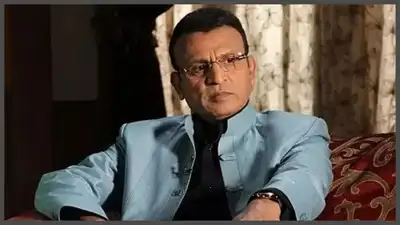
Amidst the Hindi-Marathi language tensions in Maharashtra, Annu Kapoor has denounced the violence as unconstitutional and politically motivated, emphasizing respect for local languages while condemning aggression. He highlighted India's diversity and the importance of unity, cautioning against extra-constitutional authority. Following unrest and debate, the Maharashtra government has reversed its decision, making Hindi an optional subject in schools.
Amid the growing Hindi-Marathi language row in Maharashtra, actor Annu Kapoor has condemned the recent violence, calling it unconstitutional and politically driven. While urging people to respect local languages and culture, he stressed that no disagreement justifies aggression or lawlessness.Offering a balanced perspective, Kapoor that while violence must be denounced, it’s equally important for individuals who move to different parts of the country for work to respect the local culture. “Language,” he noted, “is an integral part of that culture.”At an event, Annu reflected on India’s rich diversity, stating that the country cannot be unified through religion, language, or community alone. He stressed that justice delayed is essentially justice denied and highlighted the importance of focusing on unity despite cultural and linguistic differences.
Using the Indian flag as a metaphor, he suggested that while people may connect with different aspects of identity, the nation’s collective future lies in embracing the whole.
Kapoor reiterated that unity in diversity is what truly defines India.A new linguistic debate is stirring in Maharashtra following the state government's decision to make Hindi a compulsory third language in schools. Introduced in April 2024, this move has been formalised through the State School Curriculum Framework-2024, issued by the State Council of Educational Research and Training.
While the policy is still in its early stages, it has already sparked growing discussions—particularly in the urban pockets of the state—about language identity, cultural autonomy, and educational priorities.The actor emphasized that respecting local languages is important—just as one would be expected to adapt linguistically when living in global cities like New York, Paris, London, or Milan. However, he strongly condemned any form of violence over language issues.
Referring to instances of aggression linked to language politics, he asserted that no one—regardless of status or affiliation—should be above the law.
Anyone who resorts to violence or acts against the Constitution in the name of language, he said, must be held accountable and face legal consequences.He further remarked that the ongoing language conflict is politically driven, suggesting that those behind it have achieved their objective—sparking nationwide attention.
According to him, the controversy has effectively shifted the spotlight, with the entire country now engaged in the debate.He added that this kind of controversy is exactly what politicians aim for—they want headlines and public discourse centered around them. He pointed out that it's not limited to one region, as politicians across India and even globally thrive on such attention.He emphasized that violence is unquestionably wrong and constitutes a criminal offense, stressing that it's the responsibility of the legal system to take action against those who break the law.
He added that delayed justice is essentially justice denied, and if justice is not delivered, it must be sought through the courts—plain and simple.He then recalled a controversy from last year involving one of his films in Mumbai, during which members of the Muslim community and certain Ulema allegedly threatened his life. In response, the Maharashtra government provided him with armed security. Once the situation was resolved, he requested the security detail be withdrawn.
However, he noted that even stepping away from such protection requires formal procedures, including submitting an application.Annu Kapoor concluded by expressing concern over what he termed as "extra-constitutional authority," stating that such forces should be condemned. He emphasized that while courts issue decisions, true justice is not always guaranteed through the legal system—highlighting a growing gap between legal outcomes and public perception of fairness.Meanwhile, the Maharashtra government has rolled back its earlier decision to make Hindi a compulsory third language in schools. School Education Minister Dada Bhuse announced that Hindi will now be an optional subject, while Marathi and English will remain the primary focus in the school curriculum.The recent unrest in Maharashtra stems from reports of MNS workers attacking individuals in Mumbai and Pune for not speaking Marathi, reigniting concerns over language-based violence and regional intolerance.

 7 hours ago
44
7 hours ago
44




























 English (US)
English (US)